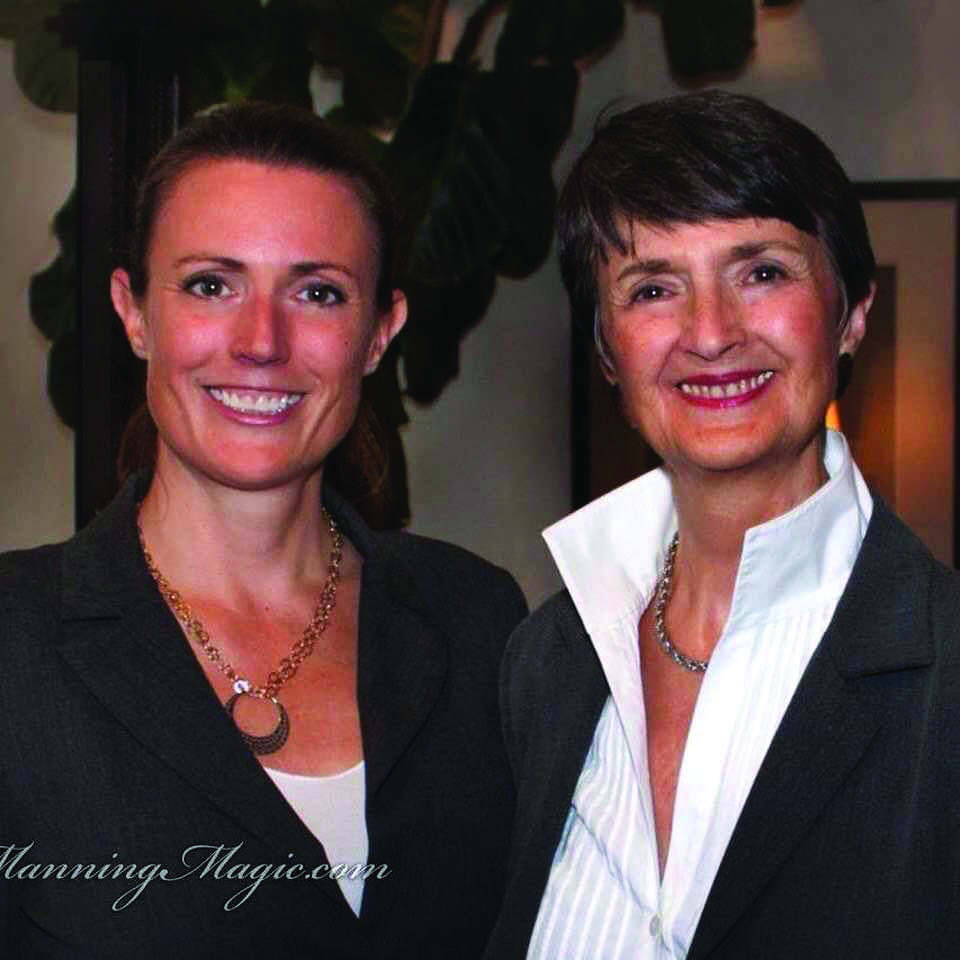For Heather Wolf, 2019 was proving to be a big year for her business, Kearsley.
Kearsley, based in Sonoma, California, is a small business that produces luxury bed linens, fabrics, blankets, and pillowcases. Wolf was in the process of opening new showrooms for her products in New York City, Boston, Chicago, and Los Angeles in 2019.
“I spent all of 2019 getting these showrooms organized, getting the staff trained, hoping that it would all pay off in 2020,” Wolf said. “In 2020, as the pandemic hit, that all vanished. The showrooms closed.”
By early February, most of the mills that supply the high-end cotton that Kearsley uses in its fabrics began closing. Wolf began buying up as much material from those mills as quickly as she could, maxing out her credit cards in the process.
The factory that Wolf uses to manufacture her products is based in Italy, one of the countries hit hardest early in the coronavirus pandemic. In March, the government imposed a quarantine that included the closure of all nonessential businesses, including the factory that supplies Kearsley.
As business quickly dried up, Wolf did not panic. Instead, she focused on what she could control.
“As just part of survival mode, my mom and I did an inventory, just focusing on what fabrics we had,” Kearsley said.
Shortly thereafter, she decided to focus on making face masks.

“People desperately needed masks in March,” she said. “People were emailing us, asking if we had fabric or elastic for masks.”
She donated material to make masks, raising money only to help with the shipping. She imposed one condition to everyone she sent material to for masks: They had to donate the masks.
While Kearsley didn’t make any money on the masks, it had psychological benefits for Wolf and her mother, Gail.
“It kept us distracted,” Wolf said.
She also kept in constant contact with potential clients during the early part of the pandemic. That ultimately yielded enough income in 2020 to keep her in business.
Wolf’s ability to go through tough times with her business and to come out the other side is due in part to hard-won experience.
She founded Kearsley in 1999, believing that the luxury linen market did not do enough to meet the wants of men and couples. Many of her initial clientele were based out of Silicon Valley. That affected her business greatly when the dot-com bubble burst in 2001.
In response, Wolf worked to expand Kearsley’s customer base, and by 2008, the business was doing well enough that she had opened stores in both Sonoma and London.
Then, the Great Recession hit.
“It dried up probably 80% of my business,” Wolf said. “We had to close the stores. Worst of all, I had to lay off most of my staff. It was awful.”
Businesses such as Kearsley are often hit hard during economic downturns, as luxury items are usually the first thing that customers cut back on as their budgets tighten. Sales in the luxury market fell 9% in the year after the Great Recession. Euromonitor International, a marketing firm, estimates that the pandemic would cause the luxury market to drop 18%.
Additionally, the customer base of luxury brands is no longer solely the wealthy elite, which means more customers with tighter budgets during a recession. About 60% of the market, by one estimate, comprises what are called “aspirational customers.” Many of those customers will not spend more than $3,000 on a luxury purchase.
Kearsley has many items priced for those customers. But Wolf can find it a tough sell.
“Many stories about Kearsley note that some of our cheapest bed linens are $600,” she said. “But those are linens made with some of the highest quality cotton and will often last well over 10 years. Plus, they get softer over time. Looked at that way, it is a really good value.”
Wolf’s experience at dealing with hard times has also helped her keep Kearsley afloat even though she had not received any government assistance. Kearsley was unable to qualify for a Paycheck Protection Program loan. Wolf has also applied for an economic injury disaster loan from the federal government, but that has been slowed in part by the fact that her credit rating was harmed when she maxed out her credit cards to keep Kearsley going.
Going into 2021, Wolf has concentrated on expanding Kearsley’s online presence and educating customers about the value of her high-end linens. She has yet to have any sales in 2021, but that doesn’t faze her given what she has learned during the difficult times.
“Tenacity, perseverance, and great passion for what I am doing is crucial,” Wolf advised. “Make it fun whenever possible, no matter how dark it seems to be, and have faith in the outcome. Those are the keys to making it through challenging economic times.”

